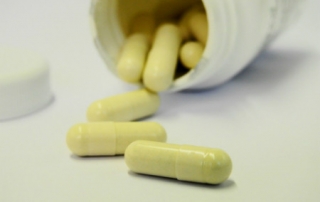Soy Supplements: No Effect on Cognition in Postmenopausal Women
Soy-based products have long been touted as a treatment for menopausal symptoms. However, many of the clinical studies measuring the effectiveness of dietary sources of soy isoflavones (e.g., soy beverages, soy powder) for the treatment of menopausal vasomotor symptoms (i.e., hot flushes, night sweats) have been negative. Less is known about the effects of soy on cognition. A large clinical trial suggests that soy may not have any positive effects on cognition in postmenopausal women.







